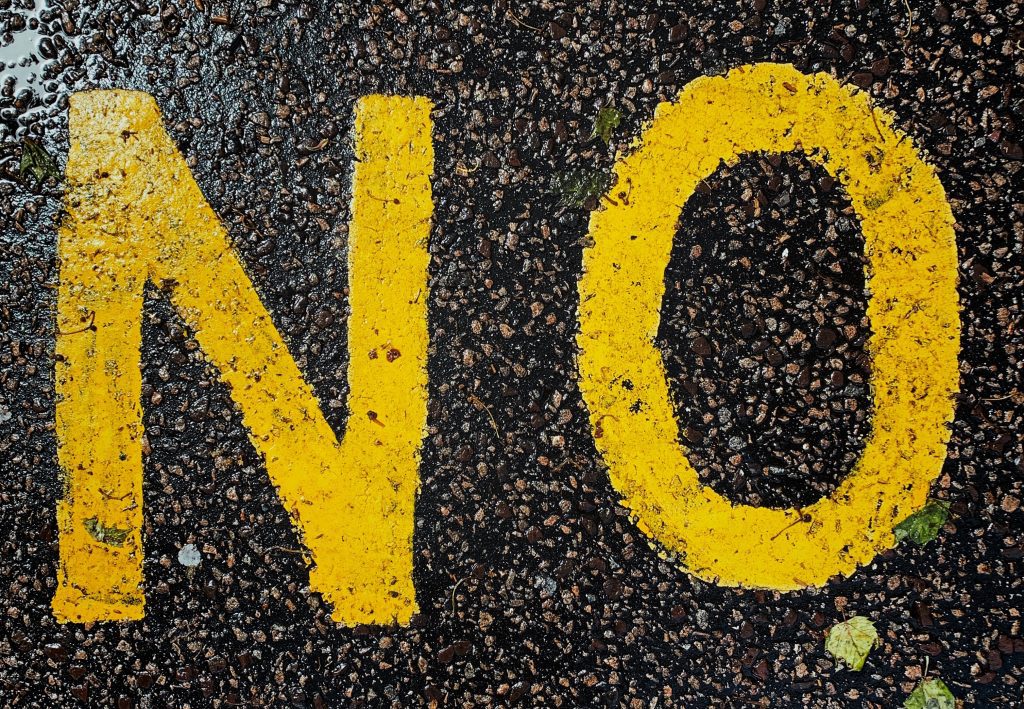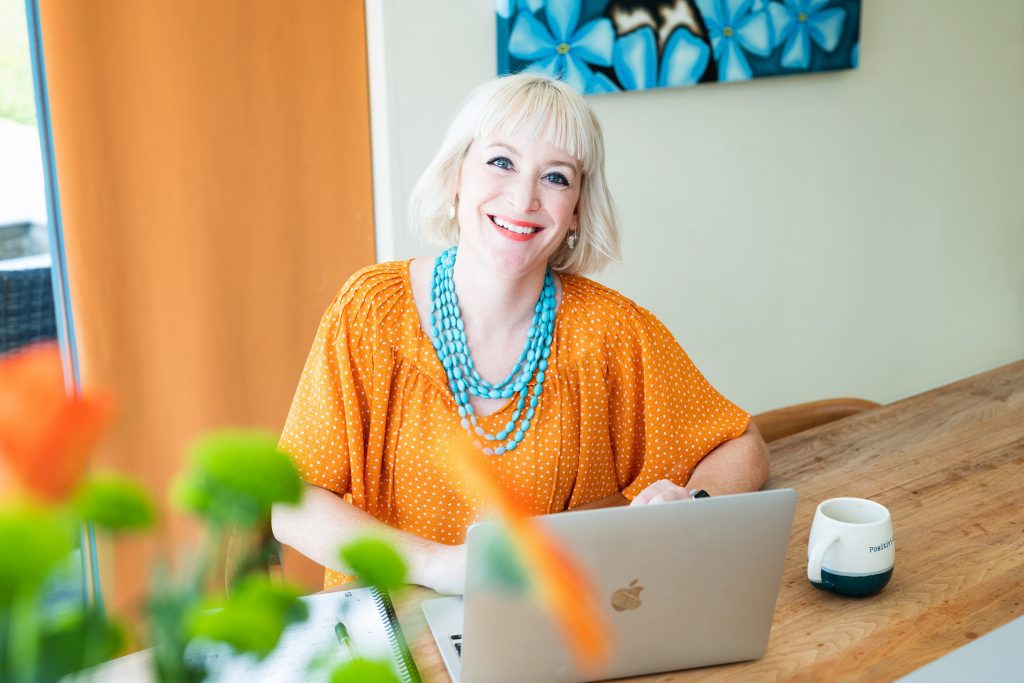We are all ultimately responsible for ourselves.
What that means is that we are responsible for our own success at work; and our own health and wellbeing.
And we are responsible for balancing the two.
Key to this balancing act is defining and maintaining effective boundaries.
You will not have a positive work/life balance if you continually answer emails at 10pm at night.
You will not support your physical and mental health if you allow yourself to take on too many projects at once.
But it isn’t always easy to set and maintain those boundaries!
Especially with all the complex feelings that can be thrown up when you try:
- You can feel guilty for letting people down, especially your boss
- You can feel anxious about rejection – worried that they won’t feel positively towards you because you said no, which might affect your career
- You’re worried you’ll be perceived as selfish or unhelpful, which is unhelpful to your reputation.
But sometimes, you do need to say no – to protect yourself, or to protect the work you’ve already got on.
So here are 5 tips to help you feel good about setting boundaries.
1. Be clear on your priorities
We all make decisions every day about how to spend our time.
These decisions are best governed by a clear understanding of our priorities.
This is a huge subject on its own (see my blog posts on prioritisation and goal-setting here!).
But the key point is: if you are clear on the most important things that you need to achieve, it will be easier to say no to something that doesn’t fit these priorities.
Because even small tasks are a distraction from you achieving the stuff that really matters.
Ask yourself: “Does this fit my priorities? If not, I am protecting my priorities by saying no.”
2. Know your limits – your time
A good reason to say no to something is because you just can’t fit it in.
So, even before you are asked, take some time to understand the limits on your time.
Review your diary regularly, and use time-blocking to schedule in actions (“I will spend the first 90 minutes of today developing our new strategic plan; then an hour catching up with emails; then an hour’s meeting with my team etc”).
You will then be able to see clearly when you’re asked to take on something new what spare time you have – or more likely, haven’t got.
If you have genuinely haven’t got the time, and the task you are being asked to take on would mean bumping one of your priorities, then it is best to say no.
Ask yourself: “Do I have the time? If not, I would need to stop doing something to fit this in. Is it more important than what I’m currently doing? If not, I am protecting my priorities by saying no.”
3. Know your limits – your energy
Sometimes it would be great to be the Duracell bunny – able to keep going forever, and when we flag, just get some new batteries.
But the human body and brain doesn’t work like that.
We all have finite amounts of energy, and we need to husband them so that we have the right energy for the things that really matter.
So being aware of your energy levels is really important.
In general, it is not a good idea to schedule back-to-back meetings all day.
It is not a good idea to work through your lunchbreak.
But you also know your own specific energy requirements.
For example, it is not a good idea for me to be doing deep thinking after a full day of clients – my brain is tired, and i won’t be effective.
And it will exhaust me for the next day.
So think about your energy requirements, and safeguard them.
It is crucial to your physical and mental health.
Ask yourself: “Do I have the energetic capacity to take this on? If not, I am protecting my physical and mental wellbeing by saying no.”
4. Be clear about what you will gain
It can be very easy to see the negative impact of saying no: the bad feelings that you will get; the look of disappointment on that person’s face.
So concentrate on what you will gain by saying no.
Two of the key benefits we’ve already discussion (ensuring you can deliver your priorities, and protecting your mental health).
In addition, you will also:
- develop a reputation for being decisive and the opposite of being a pushover
- build your sense of self-worth as you continue to take decisions that value your time, energy and priorities
- bolster your confidence that you will achieve your goals because you are taking goal-driven decisions.
These are all good things!
Ask yourself: “What will I gain by saying no to this?”
5. Say no in a positive way
Finally, the way in which you say no can make a big difference to how you feel.
Be clear: don’t say “maybe tomorrow” or “I’ll think about it”.
(It is completely legitimate to say you want to check your calendar first, however – just make sure you come back with a clear yes/no after that.)
And don’t lie or make up excuses – that will only make you feel worse:
“I would if I could but I have a meeting so I don’t have time, sorry”.
But you can explain your (very good) reasons:
“I’m really sorry, if I take that on I would have to drop something else more important.”
“I just don’t have capacity to do that right now.”
And if it is possible for you to do this without resulting in any negative impacts, you have the option to offer an alternative:
- suggest someone else who might be able to help;
- offer to do it at a time that is convenient to you; give them something else smaller that contributes, rather than taking on the whole task.
Ask yourself: “how will I feel if I take this on without having the time or energy to do it?
Resentful, bitter, and stressed.”
“How will I feel if I say no to this clearly and graciously? Confident, clear and full of self-worth.”
Which do you think is the better option?
Good luck!
xx
For help with saying no, and feeling good about it, get in touch for a free introductory chat: kirsten@kirstengoodwin.co.uk.
Things to do and consider
- Build an awareness now of your time and energy constraints. If you have this understanding already, it is much easier then to see whether new tasks are achievable within these boundaries, or not.
- Practice saying no! It really does work… Say to yourself in the mirror: “I’m really sorry but I just don’t have the capacity to do that right now.” The more you say it, the easier it gets…





